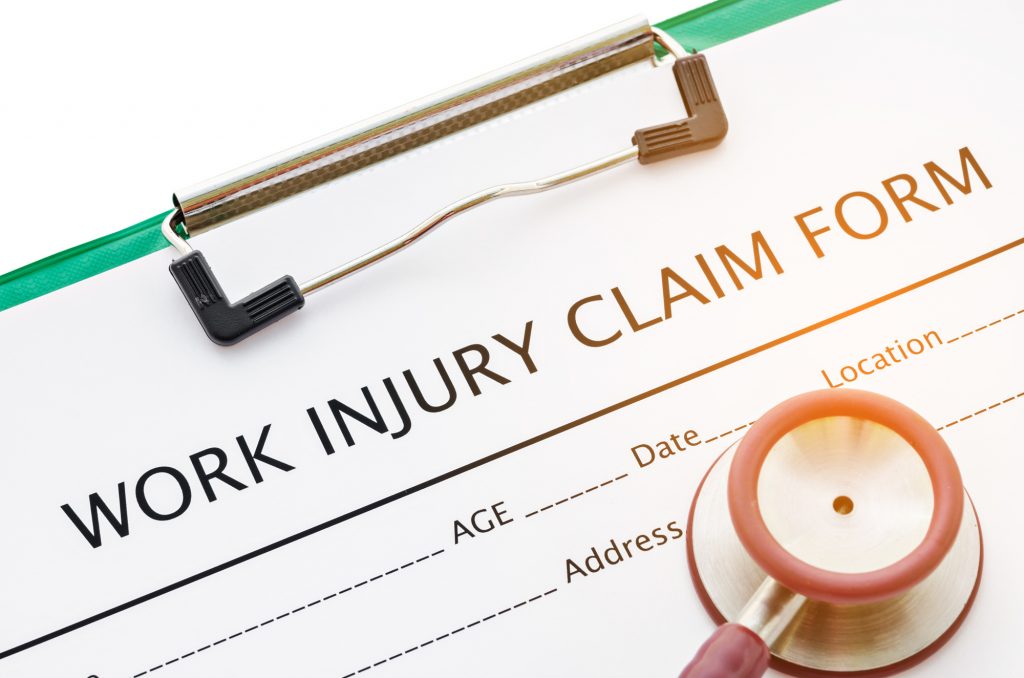You’ve likely seen the workplace safety posters hanging around your jobs over the years, but you never think a work injury will happen to you. Unfortunately, sustaining an injury at work is more common than you might think. In 2020 alone, there were 2.7 million nonfatal workplace injuries and illnesses across the United States.
While you hope you’ll never find yourself dealing with a workplace injury, it’s important to be prepared, just in case. We’re here to help you do just that.
Continue reading to learn all the steps to take if you sustain an injury at work to make sure you’re protected.
Report Your Injury to a Supervisor
As soon as you suffer from an injury at work, you need to find your supervisor and tell them what happened. If your injury is particularly severe, try to get the attention of a coworker and ask them to get your supervisor for you.
Your supervisor will be able to provide you with guidance in the immediate aftermath of the accident. They’ll also need to fill out some paperwork to create an official accident report.
Depending on where you work, there may be some state regulations about filing an accident report within a certain timeframe in order for you to qualify for worker’s compensation, so make sure your supervisor doesn’t hesitate to fill out an accident report.
It’s important to remember that you always need to report a workplace injury to your supervisor, even if you believe it to be minor. You never know if your injury will become more serious over time, so it’s better to be safe than sorry. When you report your injury, you can also bring up any safety concerns if you have them, which could help prevent future accidents.
Get Medical Attention
After you report your injury, you need to get medical attention as soon as possible. Again, even if your injury doesn’t seem serious at first, you want to cover all your bases. It’s especially important to have your doctor’s visit on record if you want to receive compensation for your injury.
Depending on your workplace, your supervisor might require you to visit a specific doctor. In that case, you’ll need to do so, but you can get a second opinion if you disagree with the first doctor’s assessment of your injury. Keep in mind that your employer should cover the cost of travel to the doctor’s office or hospital after your injury.
Gather Evidence
Once you’ve received the proper medical attention, try to return to the scene of the accident as soon as possible so you can gather evidence. If you can, take pictures of the scene and talk to coworkers that witnessed the accident so you can write down their accounts.
It’s also important to write down as much as you can remember about the details of the accident before they start to fade from your memory. At a minimum, you should write down the following:
- Where and when the accident happened
- What you were doing when it happened
- The contact information of any witnesses
While you hope it won’t happen, there’s always a possibility that your employer might claim that you didn’t sustain your injury while at work. Having evidence to back up your claim is crucial.
File a Worker’s Compensation Claim
After you’ve gathered evidence, it’s time to file an official worker’s compensation claim. This will help you get the benefits you’re owed as an employee. Worker’s compensation will help cover the cost of your injuries, including medical bills and time missed at work as a result of your injury.
Hire a Personal Injury Lawyer
Next is perhaps the most important step. You need to find a lawyer with experience similar to your case so you have the strongest case possible. For example, if you’re a railroad worker who’s suffered an injury at work, you need to talk to railroad injury lawyers that can help you with your case.
The more experience a lawyer has with cases like yours, the stronger your case will be. When trying to decide on which lawyer to hire, be sure to ask about their experience with worker’s compensation and any questions you have about what the process will be like for the lawsuit.
When you’re making your decision, it’s also a good idea to look up local personal injury lawyers online to read reviews from previous clients. This will help to give you a better idea of what it may be like working with a particular firm on your case.
Also, keep in mind that a good lawyer should be realistic. If you meet with a lawyer that offers outlandish claims about your case, it could be a red flag and a sign that you should continue your search.
Keep Track of All Relevant Expenses
Finally, you’ll need to keep a thorough record of all your expenses, starting from the moments right after your injury. This includes tracking expenses related to the following:
- Time missed from work
- Medical treatments
- Medication for your injuries
- Mileage for traveling to and from medical appointments
Keeping a detailed log of all of these expenses will help to ensure that you get exactly what you’re owed as a result of your injury. Your lawyer will also be able to provide guidance on how to track expenses.
Remember These Tips if You Sustain an Injury at Work
While we hope you never need to use these tips for yourself, it’s important to keep them in mind should you sustain an injury at work. As a result, you’ll be more prepared and in a better position to get the compensation you deserve.
Interested in reading more content like this? Browse through our full collection of articles before you go.
Read more: 3 Tips for Filing a Personal Injury Claim

